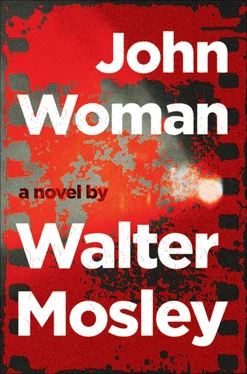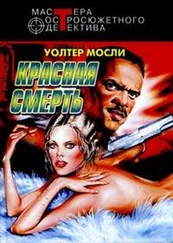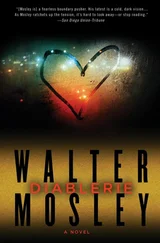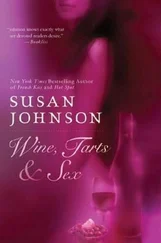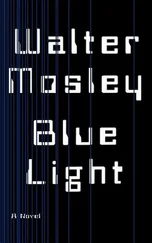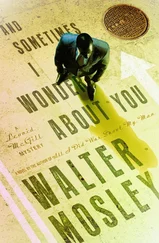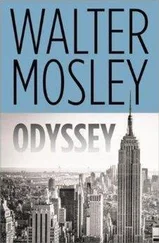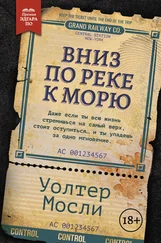Having these thoughts John smiled at the class.
There was Maurice Middleton, the openly gay architectural student who was working his way through school as a middleweight journeyman opponent for those pugilists trying to make their way to contender status; Lena Oncely, a fortysomething black woman who lived three blocks from campus and worked on Madison Avenue in Manhattan giving hand jobs through a hole in the wall at a massage parlor called the High End.
Seventeen-year-old Christian Van Dyne came in exactly on time and sat in the third row at the far left, as far as he could sit from John while remaining connected to the class.
With the final member seated John felt the jolt of adrenaline he’d experienced at NUSW when a semester began.
“Welcome to The School of Suspicion,” he said. “In this class we will learn what we don’t know, what we can’t know and how to navigate in a world that the senses, the intellect and the heart deny. I am a history professor by training and this is a class of ideas but I feel qualified to teach it because everything people think and do, say and reel from is in response to the forces of history. From the circumstances of your birth to the primal explosion of the universe there is a story to everything, even those things that most people do not, cannot, will never suspect.
“I have personally chosen each of you for this class. There were hundreds of applications. You are students from the college and members of the community capable of using personal experience to understand the broader world. The only way to comprehend our history is through empathy. How you interpret your environment is more distinctive than a fingerprint. The matter that your body comprises makes you matchless, impermanent and irreplaceable...”
A hand went up. John was about to give his usual admonition that questions would be entertained later then decided that he was no longer that man.
“Yes,” he said. “And please, everyone, give your name and any other pertinent information the first time you speak.”
“Antonio Gargan.” He was a long and lanky septuagenarian with red brown skin and a fifty-seven-year membership in the welders’ union. He kept his hand in the air as he spoke. “I don’t know if this matters, Professor, but I don’t understand what you’re sayin’.” This got a few laughs from the class. John himself smiled. “When you’re reading a book you often come across passages that don’t immediately make sense,” John said. “Isn’t that right?”
“Like the Bible,” Gargan offered.
“Or the Koran, the Bhagavad Gita, the writings of Confucius — even the remembered teachings of the illiterate Buddha. I will, we will say many things in here that might at first seem confusing, even meaningless. That’s why we’ll have to back up murky assertions with real examples.”
“Like what real?” Antonio Gargan asked, finally putting his hand down.
“Recently,” John said, “in a plea deal I admitted to the murder, bargained down to manslaughter, of Chapman Lorraine. I confessed to the crime and accepted the fifteen- to twenty-year sentence the district attorney offered. I hadn’t shared with him the intimate details of the crime nor did he ask for them. He was convinced that I was the killer and that there was no other viable suspect. But in the courtroom the next day it turned out that there was another man who could have committed the crime. This man had also confessed and provided damning details. He also had a reasonable motive.
“I withdrew my confession and the prosecution found it convenient to abrogate the charges against me. I stand before you an innocent man... but is that true?”
“Did you kill him?” a young woman asked. “Marla Robbins. I’m a student here.”
“The answer to that, and a thousand questions like it, will be the subject of our class.”
John the Professor allowed this last statement to settle in.
“Why did they suspect you?” Christian Van Dyne asked. “Christian. I’m a freshman at CCNY but I’m taking this class.”
“Suspicion fell upon me because of the discovery of a corpse and very good, very diligent police work,” John said.
“Couldn’t be too good if they found you innocent,” a young woman noted. There was a perpetual, cynical twist to her lips and unsinkable mirth in her tone. “Um... Mary Freeman. I live around here.”
“Bereisheet,” John said, “the Hebrews’ word for the beginning, tells us that there is no such thing as innocence in the human breast. From the judge to the condemned to the executioner we are all complicit in the crimes of humanity. It is one of the objectives of this course to map out an approach that will accurately define these connections.”
“But did you do it?” Christian Van Dyne asked.
“A valid question,” John allowed, “seeing that I brought up the example. But before we get there I have something else to ask the class — something that will illuminate our purpose here.”
Christian frowned, slamming his spine into the backrest of his desk-chair.
John eyed his son a moment and then turned to take in the rest of the class.
“The question I wish to pose is simple,” he said. “Who is the most important person in your life? I don’t want you to answer immediately. Think about it as we discuss other topics. Ruminate on it.”
“What do you mean by important?” another young woman asked. “I’m Cheryl Nord, a senior here at Medgar.”
“Good question,” John said. “I’m defining importance as need. A person of primary importance in your life must also provide something you need, something you can’t live without.”
Again John paused.
Morton Brown’s eyes and ears in the class, Dawn Langthorpe, was staring at John, smiling broadly.
“The school of suspicion,” he said, looking the class monitor in the eye, “in a formal sense can be explained by the works of four great scientists, all of whom lived and died in the last century or just before. These men are representative of the processes that we are trying to understand but their work is not what we are here to learn about. Their methods and their sense of the world are all we need understand.
“These thinkers are Sigmund Freud, Karl Marx, Albert Einstein and Charles Darwin. All of them western thinkers, so-called white men. Scientists who eschewed the obvious in an attempt to address those moments in our lives that were hitherto relegated to the realm of the inexplicable.
“Don’t be afraid to take notes,” John advised and half the class reached into their backpacks and briefcases, coming out with papers, laptops and tablets. “Freud realized that there was a force beyond consciousness that drove the human heart: things we don’t know, material that we forget and then forget that we forgot. This unconscious material rules our lives just as surely as the governmental and religious laws we both evade and obey.
“Marx tells us that a similar force, the economic infrastructure, organizes our daily lives more than any religion.
“Einstein, like Plato before him, says that we live in darkness and that the true nature of the universe is transparent to our senses.
“Finally, and originally, Charles Darwin, while believing in God, proved that we came not from a moment of divine inspiration but from billions of years of happenstance genetic experimentation practiced by tiny cells whose only goal was survival.
“These thinkers, thoughts, methods and ideas are what we’ll use to interrogate and understand that which we do not understand.”
A hand went up.
“Yes?” John said.
“Amber Martins, high school dropout,” the tattooed and pierced eighteen-year-old said. “The most important person in my life is my great-grandmother Mirabelle Curson from Kentucky. She’s the only one interested in what I want and not what everybody else wants me to be.”
Читать дальше
